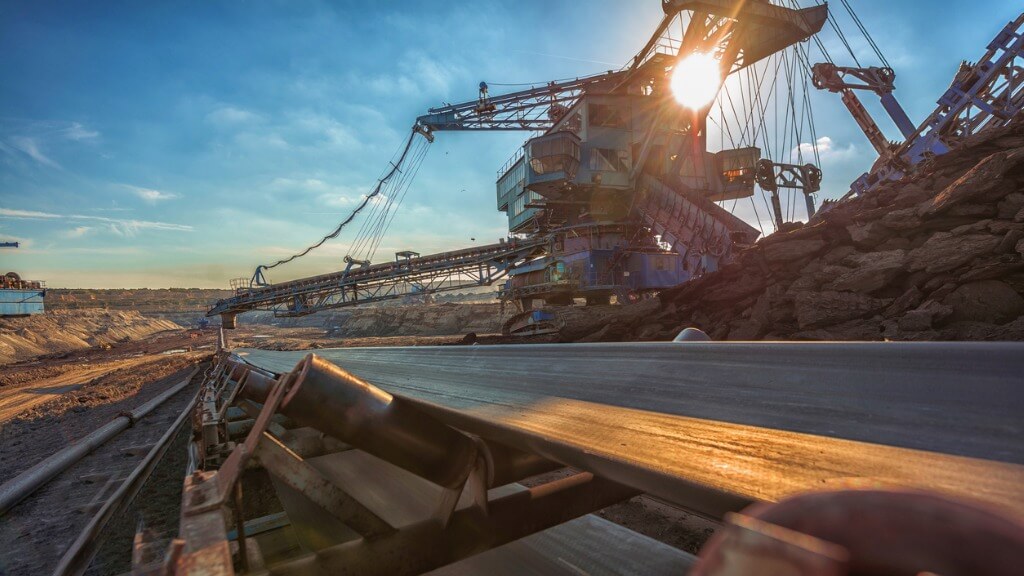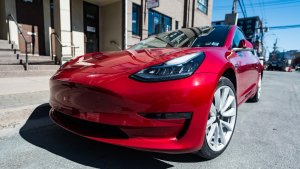Electric cars slash air pollution, but do they cause as many ethical and legal problems as they solve? It's time to talk about cobalt.
Can We Source Cobalt Legally And Ethically To Fuel Electric Cars?
Electric cars slash air pollution, but do they cause as many ethical and legal problems as they solve? It's time to talk about cobalt.

In June 2018, the British government announced that new petrol and diesel vehicles will be banned from 2040, prompting debate about which types of battery will be used in electric cars.
Currently, lithium-ion batteries dominate the market, and are used in most new tech devices, including mobile devices, laptops - and electric cars. They are widely considered the best product, but sourcing the necessary amount of materials ethically and sustainably poses numerous challenges.
Businesses that make products with lithium-ion batteries need to be aware of the soaring prices of cobalt and possible shortages of the metal, a key component in this kind of power cell.
Even more importantly, they need to be alert to how they source the component: without scrupulous attention they risk seriously unethical practices in their supply chain, or even breaching the Modern Slavery Act.
Charging towards high prices
As demand for lithium-ion batteries has boomed due to the explosion of new technology, this has put increasing pressure on the supply of many resources needed to create them.
The Financial Times reports that batteries make up “35 per cent of lithium use in 2015, up from 25 per cent in 2007, with electric vehicles, phones and personal computers accounting for 60 per cent of that market.”
But cobalt is a far greater concern. This relatively rare metal is another essential component of lithium-ion batteries, and it is in short supply.
Growing demand means the price of the commodity has surged by 80% in the last year alone. But even paying high prices, there can still be supply chain issues for those who manufacture or buy lithium-ion batteries.
The rapidly growing electric car market can only increase the strain, with auto demand for batteries expected to rise 40 times by 2040.
Some car manufacturers are aiming to address rocketing prices by attempting to sign fixed-price agreements, guaranteeing them a certain amount of cobalt for a set period.
This is an ideal move for businesses if they can reach a deal, but cobalt providers may not be willing to agree, as they benefit from rising prices and demand. Volkswagen’s recent attempts to secure a fixed-price agreement with numerous key cobalt miners were unsuccessful.
But concerns around purchasing cobalt extend far beyond pricing and supply shortages. Companies need to be aware of wider legal issues to ensure that, as well as supporting the government’s clean air plan, they are also operating clean supply chains.
Slavery in the supply chain?
Modern slavery, bribery and child labour are issues which can strike fear into the hearts of companies. Neglecting to take these topics seriously can have dire consequences for a company’s reputation, and the legal implications of stepping the wrong side of the line can be equally severe.
The Modern Slavery Act requires each UK business with an annual turnover of £36 million or more to conduct due diligence in its supply chains to identify risks of modern slavery, and to report on the measures they have in place to avoid unethical practices.
Around 58 percent of cobalt production takes place in the Democratic Republic of Congo (DRC), a volatile country which has suffered from extensive civil war and corruption.
At least 20% of cobalt from the DRC is extracted from artisanal mines, which Amnesty International describe as “hazardous” and “unsafe”. In these small-scale, unofficial mines, workers use manual, often dangerous, techniques to extract the ore.
Miners often have no protective clothing or equipment, despite respiratory and dermatological health risks linked with exposure to cobalt.
UNICEF has reported that of the 100,000 people believed to be working in these mines, approximately 40% are children, who can be as young as six.
The opaque system means that many manufacturers and suppliers of products that use cobalt will be shocked by these statistics. But unfortunately, making sure that these practices are eliminated from the supply chain is not an easy task.
Minimal regulation and complex supply chains surrounding unofficial mines in the DRC makes it very difficult for businesses to conduct proper investigations into labour standards of the cobalt they buy.
Metal from unofficial mines is often smelted together with that extracted from industrial mines very early, making it impossible to know the original source.
These factors make performing due diligence in cobalt supply chains very difficult, and solving the issues around ethical working practices.
According to Hermes Investment Management, elimination of poor working conditions and child labour requires “co-ordinated action from consumers, governments, mining companies and non-governmental organisations” alike.
Enter the innovators
As supplies run shorter and become harder to source ethnically, alternatives to lithium-ion batteries look increasingly appealing.
Panasonic, which produces power cells for Tesla, was one of the first to start working on producing a cobalt-free battery. Many others are following suit, and The Blue Battery goes even further by using salt water to produce power, eliminating not just cobalt but toxins and many other essential components in lithium-ion models.
Companies who could switch over to new technologies would circumvent the problem of cobalt production.
But although many major players are working on developing new battery technology, and significant steps are being made, this technology is still some way off, and for many lithium-ion batteries remain a necessity for now.
Recycling cobalt is possible, and businesses could consider shifting focus towards sourcing reused materials where they can.
But the lifespan of lithium-ion batteries is so long that the volume required in coming years will outpace people getting rid of them, so this will not be a comprehensive solution for many organisations, particularly those who need large quantities of the metal.
Companies may want to avoid ethical problems by sourcing newly mined cobalt from countries other than the DRC, but with supplies scarce and the country producing the majority of the metal, this path is also likely to have significant challenges.
Those who do need to source cobalt from the DRC must focus on robust due diligence, and gaining a clear knowledge of its supply chain to eliminate risks of modern slavery and child labour. It is also critical that suppliers are contractually obliged to avoid offences under bribery legislation.
Jayne Hussey is a partner at Mills & Reeve, Sarah Ford is an associate at the same firm.
Thanks for signing up to Minutehack alerts.
Brilliant editorials heading your way soon.
Okay, Thanks!

